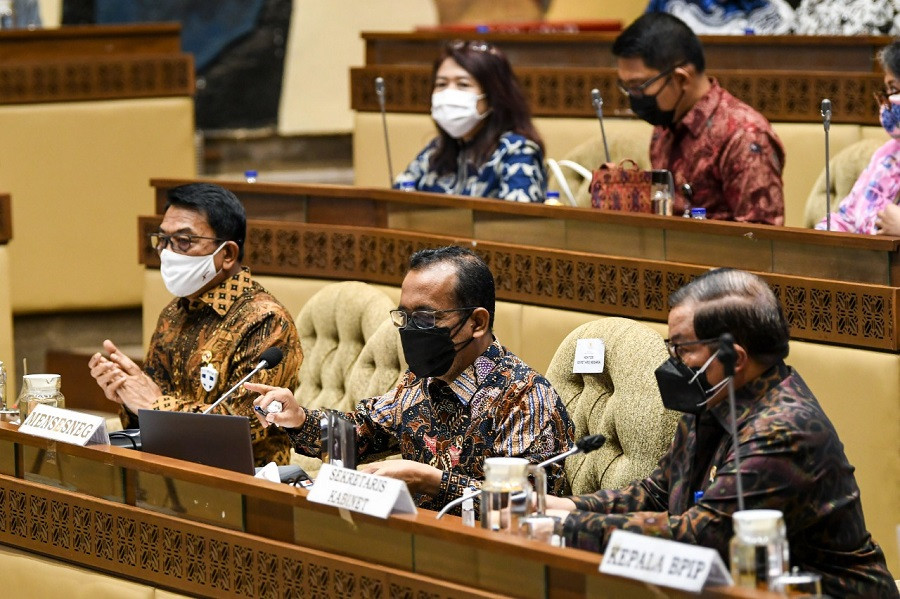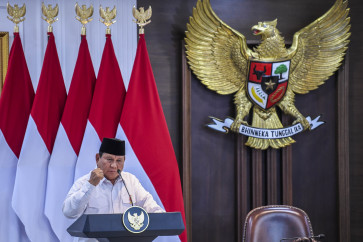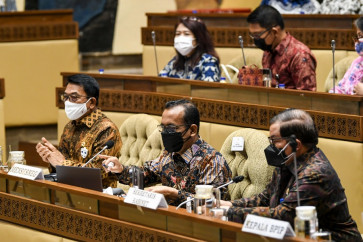Popular Reads
Top Results
Can't find what you're looking for?
View all search resultsPopular Reads
Top Results
Can't find what you're looking for?
View all search resultsPost-pandemic recovery: Higher or lower budget deficit?
The government needs to take the bull by the horns and push for higher spending and deficit to achieve higher growth, instead of worrying overmuch about demonstrating its prudent approach and leading the economy to painful and prolonged weak growth.
Change text size
Gift Premium Articles
to Anyone
 Face to face: Government representatives (from left) Presidential Chief of Staff Moeldoko, State Secretary Pratikno and Cabinet Secretary Pramono Anung attend a hearing on state budget allocation with the House of Representatives Commission II overseeing governance affairs on Sept. 20. (Antara/Galih Pradipta)
Face to face: Government representatives (from left) Presidential Chief of Staff Moeldoko, State Secretary Pratikno and Cabinet Secretary Pramono Anung attend a hearing on state budget allocation with the House of Representatives Commission II overseeing governance affairs on Sept. 20. (Antara/Galih Pradipta)
“Is there any economic limit to the deficit? I know, of course, about the political limits. [...] But is there any economic limit to size of the debt in relation to national income?” United States President John F. Kennedy asked his chief economic adviser and Nobel laureate in economics, James Tobin, in 1962.
Tobin replied that “the only limit is really inflation”.
This conversation, as recounted by Tobin and cited in Stephanie Kelton’s The Deficit Myth (PublicAffairs, 2020), presents an interesting discourse on the relationship between the government budget deficit and inflation.
This topic is extremely relevant today, as many countries have suffered huge fiscal deficits in their efforts to mitigate the economic and social impacts of the COVID-19 pandemic that has held the world in its grip for nearly two years. Huge fiscal and monetary stimulus had to be provided at a time when taxes fell off the cliff, pushed by the pandemic-induced economic contraction and recession.
And now, amid the mounting debt and deficits, many countries are facing higher inflation as easing the public mobility restrictions and social protection programs create higher demand. After a decade of sluggishness, price pressures are growing. Inflation has risen above the targets of central banks across most of the world, exceeding 5 percent in the US and 3 percent in Europe. Some countries like Russia, Brazil and South Korea have raised interest rates, offsetting the impact of their stimulus programs.
The upward pressure on inflation is also coming from rising food prices, rising energy costs – especially for gas and coal – soaring shipping rates and rising wages from the tightening labor market.
If Tobin’s remark should be any guide, then it means that until fiscal deficits generate inflation, a country does not have to worry about the sustainability of its fiscal deficits when its economic fundamentals become vulnerable to loss of investor confidence, which in turn results in declining investment, capital outflows, higher borrowing costs and declining income and investment.

















